Zinco è un metallo comunemente usato. È noto per la sua resistenza alla corrosione. Tuttavia, la domanda sorge spontanea: Lo zinco arrugginisce? Molte persone si chiedono se lo zinco possa arrugginire come il ferro o l’acciaio. Lo zinco ha proprietà uniche che influenzano il suo comportamento alla ruggine. Reagisce diversamente se esposto all'umidità e all'aria.
Questo articolo spiegherà tutto sullo zinco e sulla ruggine. Esploreremo le sue proprietà e come resiste alla corrosione. Imparerai come si comporta lo zinco in varie condizioni. Immergiamoci nei dettagli delle proprietà antiruggine dello zinco.
Panoramica sullo zinco
“L’immagine mostra lo zinco nella sua forma non trasformata, forma grezza prima della raffinazione.
Lo zinco è un metallo bianco-bluastro presente nella crosta terrestre. Svolge ruoli importanti in diversi settori, principalmente nella zincatura dell’acciaio e nella produzione di batterie. A causa della sua capacità di resistere alla corrosione, lo zinco è ampiamente utilizzato nell'edilizia e nell'elettronica.
Proprietà dello zinco
Tavolo: Proprietà fondamentali dello zinco
| Proprietà | Descrizione |
| Numero atomico | 30 |
| Peso atomico | 65.38 g/mol |
| Punto di fusione | 419.5°C (787.1°F) |
| Punto di ebollizione | 907°C (1665°F) |
| Densità | 7.14 g/cm³ |
| Colore | Bianco-bluastro |
| Resistenza alla corrosione | Elevata resistenza alla corrosione |
| Conduttività elettrica | Moderare, rendendolo adatto per applicazioni galvaniche ed elettriche |
| Conduttività termica | 112 W/m·K (conduttività moderata) |
Lo zinco arrugginisce nel tempo?
“In questa immagine, un uomo sta utilizzando un rivestimento di zinco per proteggere la recinzione dalla ruggine e dalla corrosione”.
Lo zinco non arrugginisce allo stesso modo ferro o acciaio. Sebbene, è più resistente alla corrosione, grazie ad uno strato protettivo che si forma sulla sua superficie. Questo strato, noto come carbonato di zinco, protegge il metallo dagli elementi ambientali.
Tuttavia, lo zinco può ancora corrodersi in determinate condizioni, soprattutto se esposti a sostanze chimiche aggressive o elevata umidità. COSÌ, mentre lo zinco è altamente resistente alla ruggine, non è completamente immune ai danni.
Quanto tempo impiega lo zinco ad arrugginirsi?
Lo zinco arrugginisce lentamente grazie al suo strato protettivo. Il tempo necessario dipende dall'ambiente. In condizioni miti, lo zinco può durare per anni senza mostrare segni di corrosione. Tuttavia, in aree con elevata umidità o sostanze chimiche aggressive, la ruggine può verificarsi più velocemente. Tipicamente, lo zinco può impiegare decenni per arrugginirsi completamente, ma può iniziare a mostrare segni di usura nel giro di pochi anni in ambienti estremi.
Ruggine di zinco vs. Ossidazione dello zinco: Comprendere la differenza
Lo zinco arrugginito e l'ossidazione dello zinco sono usati in modo intercambiabile per la maggior parte del tempo. Tuttavia, Ci sono differenze da vedere.
Zinco ruggine implica diversi processi di trattamento attraverso i quali il metallo di zinco viene attaccato dall'umidità e dall'aria. Mentre si usa il ferro forma ruggine e si trasforma in ossido di ferro, ma mentre si usa zinco forma uno strato di carbonato di zinco. Lo strato previsto forma una protezione che impedisce una maggiore corrosione.
In confronto, Ossidazione dello zinco avviene quando lo zinco reagisce con ossigeno. Di conseguenza, Forma uno strato di ossido di zinco sulla superficie del metallo esistente. L'ossido di zinco è una polvere bianca. Generalmente, Tende a formarsi velocemente se esposto a condizioni asciutte. Mentre la ruggine indebolisce il metallo e sembra anche spiacevole, L'ossido di zinco non causa molti danni al metallo ma può essere esteticamente spiacevole.
COSÌ, semplicemente, Il ruggine è la peggiore forma di degrado, mentre l'ossidazione è un processo fisiologico. La formazione di uno strato di ossido sulla superficie dello zinco è considerata una delle ragioni della sua stabilità a lungo termine.
Cause della corrosione dello zinco
Ecco diversi motivi per la corrosione dello zinco:
1. Esposizione all'umidità e all'acqua
L'umidità, e l'esposizione dello zinco all'acqua tende ad aumentare il tasso di corrosione dello zinco formando una reazione chimica. Forma idrossido di zinco. Poiché continua da molto tempo, trasforma lo zinco in carbonato di zinco. Questo strato protettivo si degrada nel tempo quando l'acqua diventa un elemento costante nell'ambiente dell'apparecchiatura.
2. Condizioni di temperatura elevata
Le alte temperature sono problematiche per lo zinco. Lo strato di ossido protegge il metallo dall'erosione. Ciò rende il metallo incline a corrompersi. Se lo aggiungiamo ai nostri prodotti petroliferi, verrà anche contaminato. Il calore accelera il processo di ossidazione, e provoca un'usura più rapida.
3. Condizioni acide o alcaline
Le condizioni acide o alcaline dissolvono il rivestimento esterno dell'ossido di zinco. In queste condizioni, Il tasso di corrosione dello zinco è relativamente più alto. La corrosione si verifica rapidamente ad entrambi gli estremi della scala del pH. Un valore di pH ideale aiuta a prevenire la sovra-corrosione.
4. Contatto con altri metalli
Man mano che diventa evidente quando lo zinco viene messo in contatto con metalli ancora più nobili, Ne consegue la corrosione galvanica. Lo zinco si corrode più rapidamente del ferro in quanto opera come l'anodo. Questo è tipico nei casi in cui i metalli sono combinati in un'unica applicazione.
Arrugginimento in acciaio zincato
- Il rivestimento di zinco impedisce all'acciaio di arrugginitura a causa della forte adesione.
- Se si verificano lievi danni allo strato di zinco, Quindi l'acciaio (un metallo di base) è incline alla corrosione. Inoltre, il motivo è, lo zinco funge da anodo sacrificale.
- Zinco, Come molti altri rivestimenti, Si deteriora gradualmente a causa di effetti ambientali avversi.
- Il deterioramento dell'acciaio può derivare da una cura inadeguata.
- COSÌ, complessivamente, si consiglia di rivestire spesso la struttura per evitare la ruggine e aumentare la durabilità della struttura.
In che modo la zincatura ferma la corrosione?
Il processo di prevenzione funziona così:
1. Processo di “colorazione” di talco o formazione del rivestimento protettivo di zinco
La zincatura avviene tramite strati sottili progressivi. Questi strati(rivestimento) proteggere l'acciaio dall'umidità e dall'umidità. Lo zinco agisce svolgendo la funzione basilare di barriera. Impedisce ai materiali corrosivi di entrare in contatto con il metallo. Inoltre, uno strato spesso ma uniforme garantisce una protezione duratura alla sicurezza del veicolo.
2. Protezione sacrificale
Lo zinco offre protezione sacrificale attraverso il processo di galvanometria. In questo processo, Lo zinco si dissolve per primo, e così protegge l'acciaio. Mantenendolo intatto Con umidità e ossigeno, forma una forte reazione chimica. Lo zinco si corrode al posto dell'acciaio, proteggendolo così dalla corrosione. Tuttavia, il processo è in continua evoluzione, garantire che la protezione sia sostenuta a lungo termine.
3. Formazione dello strato di carbonato di zinco
Lo zinco è sensibile all'umidità e viene influenzato dall'ossigeno. Formano uno strato protettivo di carbonato di zinco. Questo strato non si corrode facilmente e fornisce un'adesione superficiale ottimale. Inoltre, evita il protrarsi dell'esposizione a sostanze corrosive.
4. Protezione dai fattori ambientali
La zincatura è uno scudo duraturo che può essere utilizzato efficacemente. Protegge anche dalle radiazioni ultraviolette e dai prodotti chimici. Sfruttarlo porta buoni risultati anche sull'utilizzo dello strato di zinco da parte delle forze abrasive. I rivestimenti ad alto spessore offrono una protezione migliore rispetto ai rivestimenti a basso spessore.
5. Minore erosione
La zincatura è resistente alla corrosione, soprattutto in circostanze gravi. Copre l'acciaio nelle regioni marine in cui sono presenti una quantità abbondante di inquinanti industriali. Lo zinco non smette di proteggere anche con i graffi. Il processo di sacrificio riduce il tasso di corrosione in misura molto limitata.
Conclusione
Come vediamo da diversi aspetti dello zinco in corrosione, Offre un'eccellente protezione contro la ruggine e il degrado. Lo zinco forma strati protettivi e si sacrifica per proteggere i metalli sottostanti, rendendolo ideale per ambienti difficili. Sebbene non del tutto immune, La sua resistenza alla corrosione estende in modo significativo la durata della vita delle strutture e dei componenti metallici.
Se stai cercando servizi professionali, Massima precisione è un'azienda leader che offre soluzioni one-stop. La nostra esperienza nella placcatura di zinco e nella protezione della corrosione garantisce risultati di alta qualità. Contattaci oggi per provare il meglio del settore!
Domande frequenti
Q1. Lo zinco arrugginisce in ambienti umidi?
Lo zinco non arrugginisce come il ferro. Forma uno strato protettivo di carbonato di zinco. Tuttavia, l'esposizione prolungata all'umidità potrebbe deteriorarlo.
Q2. Quanto dura il rivestimento di zinco?
Il rivestimento in zinco dura 20 A 50 anni. L'esposizione a condizioni difficili ne riduce la durata. I rivestimenti più spessi offrono una migliore protezione a lungo termine.
Q3. La zincatura è più durevole della zincatura?
La zincatura fornisce uno strato protettivo più sottile. La zincatura offre più spessore, protezione più duratura. La zincatura è migliore per gli ambienti difficili.
Q4. Il rivestimento in zinco può essere riparato?
SÌ, i rivestimenti di zinco possono essere riparati efficacemente. La vernice ricca di zinco può ripristinare il rivestimento. La nuova placcatura è un altro metodo di riparazione.
Q5. Perché lo zinco si corrode mentre agisce come anodo sacrificale?
Lo zinco si corrode a causa delle sue proprietà elettrochimiche. Protegge l'acciaio corrodendosi prima. Questo processo impedisce la ruggine del metallo sottostante.
Q6. Lo zinco reagisce con l'acqua salata?
Lo zinco reagisce con l'acqua salata nel tempo. Forma sali di zinco, che offrono protezione. Tuttavia, l'esposizione continuata potrebbe eventualmente causare corrosione.
D7. Lo zinco può essere utilizzato per applicazioni elettriche??
Lo zinco è utilizzato nelle batterie e in altri dispositivi. Ha una conduttività elettrica moderata per usi specifici. Lo zinco è meno efficace per i cablaggi ad alta conduttività.

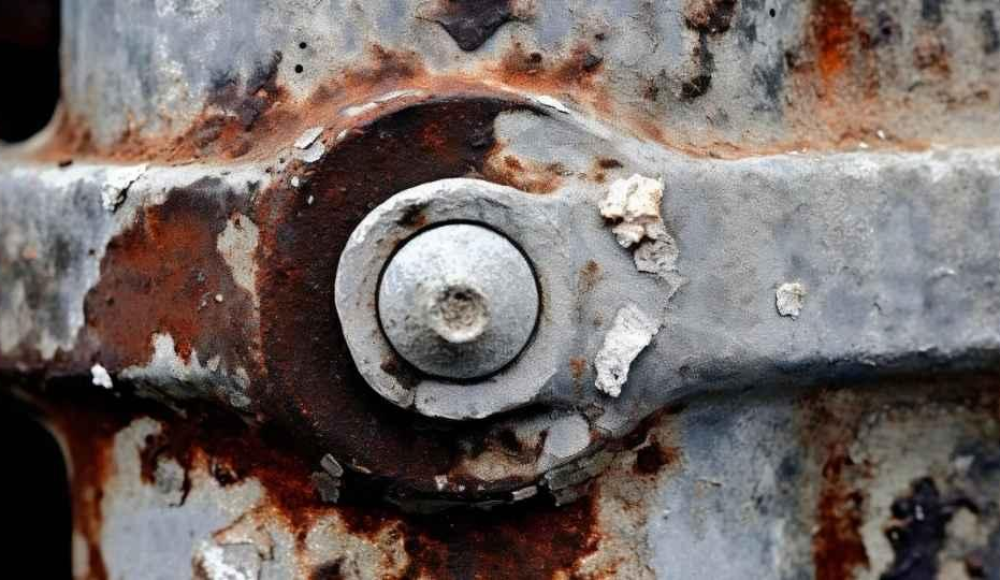
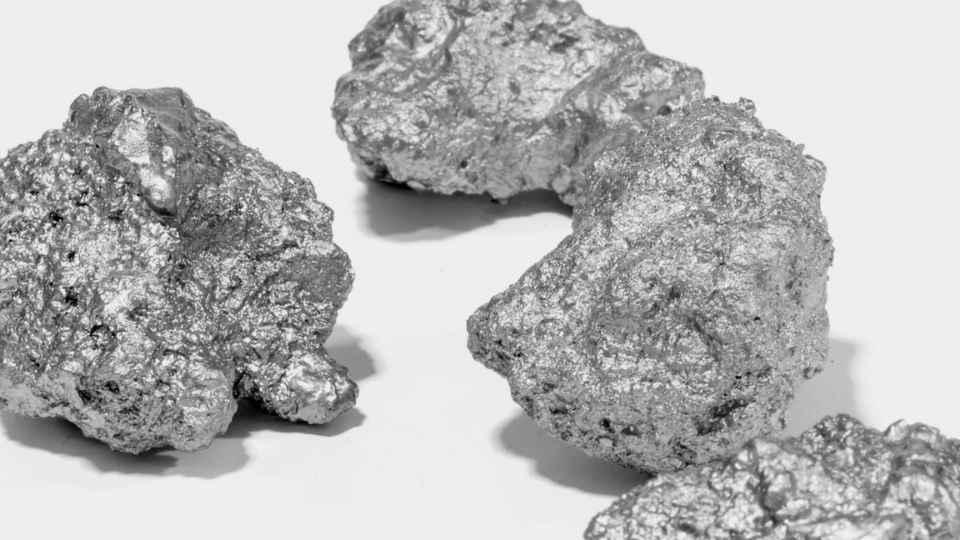
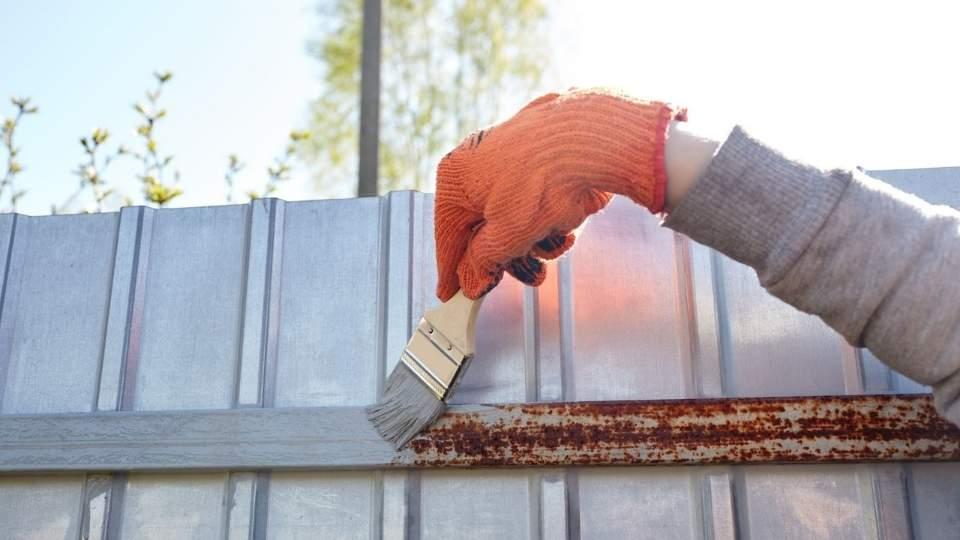
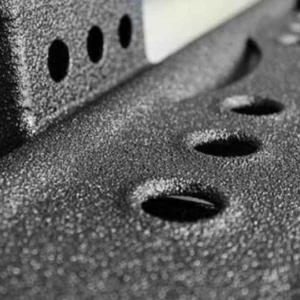
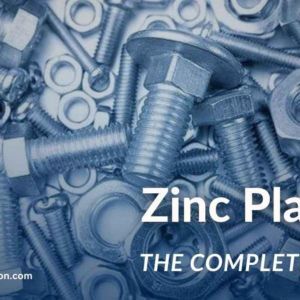
1 pensato a “Lo zinco arrugginisce – Ecco tutto sulle proprietà della ruggine dello zinco”